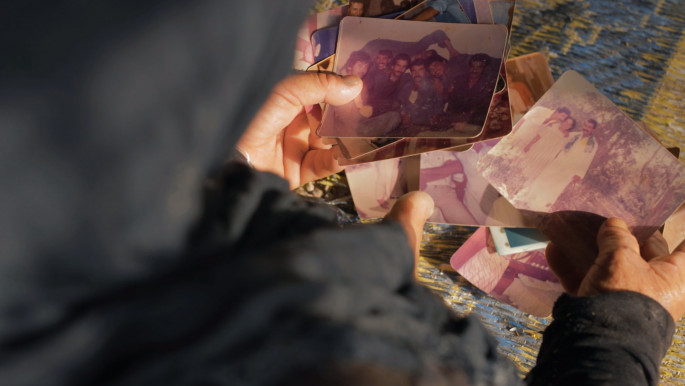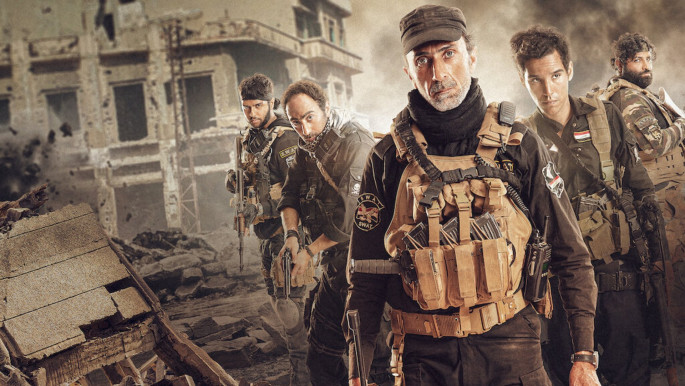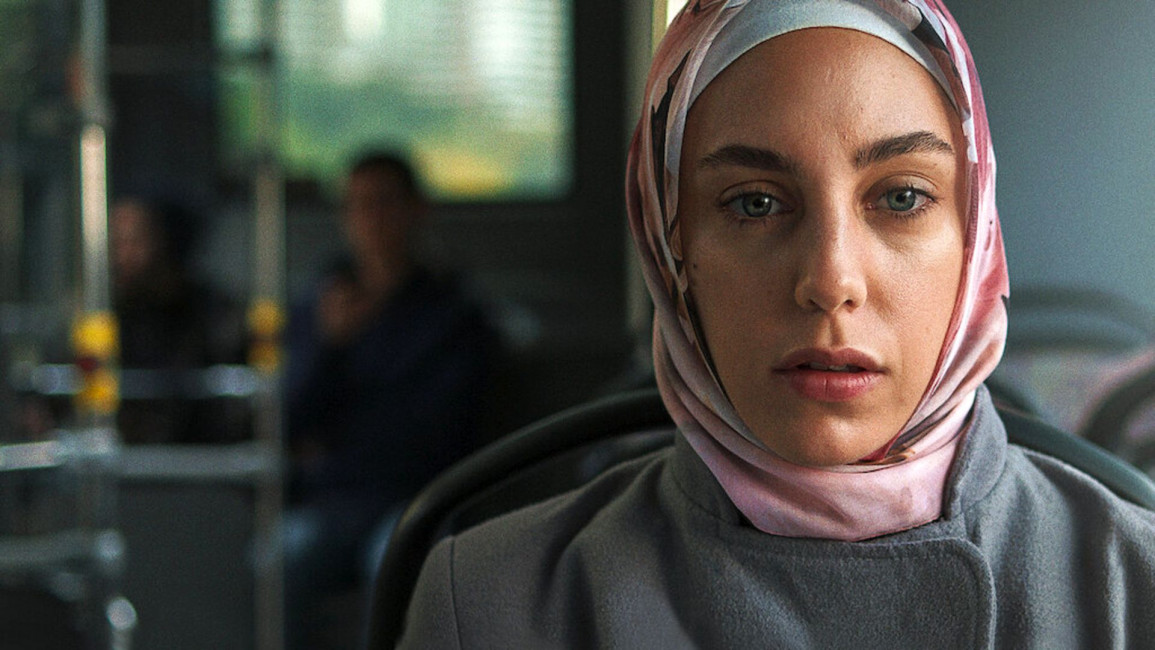The Middle East's top films and TV series of 2020
The global Covid-19 outbreak has seen festivals cancelled, television productions put on hold and films held back from release.
But the pandemic has also had many of his holed up at home, with more time than ever to watch old favourites and the latest series and movies.
The New Arab has collated a list of some of the best films and TV series from Middle Eastern and North African creators this year. From comedies and thrillers to dramas and documentaries, these picks explore pressing themes including the plight of women, child labour, terrorism, and war.
You Will Die At Twenty (Sudan)
This coming-of-age drama is only the eighth film to be made inside Sudan and the country's first ever submission to the Academy Awards.
You Will Die At Twenty follows Muzamil, young man whose death at the age of 20 is prophesied not long after his birth.
The early prophecy casts a shadow on Muzamil's formative years, evoking the burdens felt by a generation on Sudan's youth growing up under the corrupt, autocratic regime of Omar al-Bashir.
As he turns 19, Muzamil takes it upon himself to decide what it means to be alive, even as death beckons.
The film premiered last year at the Venice International Film Festival but opened for a wider audience on Netflix in the Middle East and North Africa this month.
Ethos (Turkey)
Bir Baskadir, renamed Ethos for its English-language release, was the talk of the town when it hit Netflix in November.
 |
| Inside Iraq's first independent film festival |
The Netflix original drama series follows the story of Meryem, a part-time cleaner from a conservative Turkish family, who begins to see a therapist after suffering repeat fainting spells.
Psychiatrist Peri is positioned at the opposite of Turkey's divided society - a foreign-educated "white Turk" from a secular, wealthy family. The series goes on to introduce a diverse array of characters spanning the breadth of Turkish society, all somehow connected to Meryem.
Zanka Contact follows two lost souls, strung-out rocker Larsen and sex worker Rajaes, grappling with PTSD after their lives collide in a car crash.
Set in the dirty underbelly of Casablanca, Ismael El Iraki's directorial debut pays homage to '70s genre movies and Westerns and received glowing reviews after its debut at the Venice Film Festival earlier this year.
"It's still there. You are fucked for life but can learn to live with it. At the heart of the movie is this couple with intersecting traumas and how they can help each other," he told The Guardian.
Sun Children (Iran)
Presented in competition at the 77thVenince International Film Festival, Majid Majidi's drama focuses on 12-year-old Ali and his three friends, who do small jobs and petty crimes to survive and support their families.
Directed by a local crime boss, Ali is charged with recovering a hoard of unspecified treasure buried underground. The four-boy main cast was largely recruited from the streets of Tehran.
As Iran's entry to next year's Academy Awards, Sun Children has already picked up a US distributor and will likely be picked up elsewhere too.
Ramy (USA)
The hotly anticipated second season of this comedy-drama series headed by Egyptian-American comedian Ramy Youssef premiered in April on American streaming service Hulu.
 |
| The New Arab's interview with Ramy Youssef |
Ramy follows the life of a first-generation American-Egyptian man and his family in New Jersey. Youssef won a Golden Globe award for his lead role in the series earlier this year.
Picking up from the title character's trip to Egypt at the end of last season, this year's episodes focused on Ramy's relationship with a Muslim preacher played by Oscar-winner Mahershala Ali. The series also features stellar performances from Egypt's Amr Waked, Palestine's Hiam Abbas and Syrian-English actor Laith Nakli.
Broken Keys (Lebanon)
Leabanon's entry to the 93rd Academy Awards, Jimmy Keyrouz's Broken Keys tells the story of a young musician in a neighbourhood that has fallen under the control of the Islamic State group in 2014.
The protagonist struggles to build his piano after it has been destroyed by terrorists, amid a ban on music. The idea came to Keyrouz, himself a pianist, when he looked on at events in Syria as a student at Columbia University.
The film - shot on location in Mosul - was first produced as an award-winning short in 2016 before being transformed into a full-length feature film. It has not yet been picked up for international distribution.
Scales (Saudi Arabia)
The allegorical feminist film Scales revolves around the story of a young woman named Hayat, who lives in an impoverished fishing village where families must sacrifice their daughters to sea monsters.
Rejecting this dark tradition, Hayat grows up an outcast. When her mother gives birth boy, she is faced with two choices: accept the brutal custom or escape.
Rise of Empires: Ottoman (Turkey)
This Netflix series captured the interest of viewers already entranced by Turkish history after watching hit dramas Ertugrul and Magnificent Century.
The docudrama, narrated by Game of Thrones star Charles Dance, mixes re-enactments with interviews to tell the story of Ottoman Sultan Mehmed II's battle to capture Constantinople.
Mosul (USA)
Following the real story of an Iraqi SWAT team attempting to complete a mysterious mission in Islamic State-group occupied Mosul, this acclaimed film made its debut on Netflix in December.
 |
| Review: Netflix's war film invites polarised responses |
Mosul is firmly a Hollywood production - based on a New Yorker article with Avengers directors the Russo brothers producing and screenwriter Matthew Michael Carnahan making his directorial debut.
But the film manages to largely escape the usual Hollywood pitfalls in the portrayal of Iraq and the wider Middle East, with an all-Arab cast headed by Iraqi Suhail Dabbach and French-Tunisian Adam Bessa.
There Is No Evil (Iran)
Rather than being silenced, he created There Is No Evil which examines the impact of Iran's death penalty on society and everyday citizens.
The film scooped up the coveted Golden Bear award at this year's Berlin International Film Festival, although Rasoulof was unable to leave Iran to attend the festival due to a government-imposed travel ban.
Follow us on Facebook, Twitter and Instagram to stay connected



![Lebanese protesters take part in a demonstration in support of Palestinians on 18 May 2021 in Beirut, Lebanon. [Getty]](/sites/default/files/styles/image_330x185/public/2021-06/GettyImages-1232967618.jpg?h=58c8a5e7&itok=0HHt3VmF)